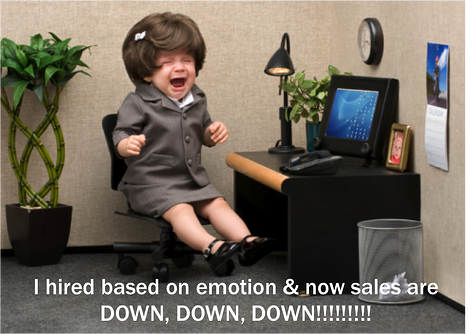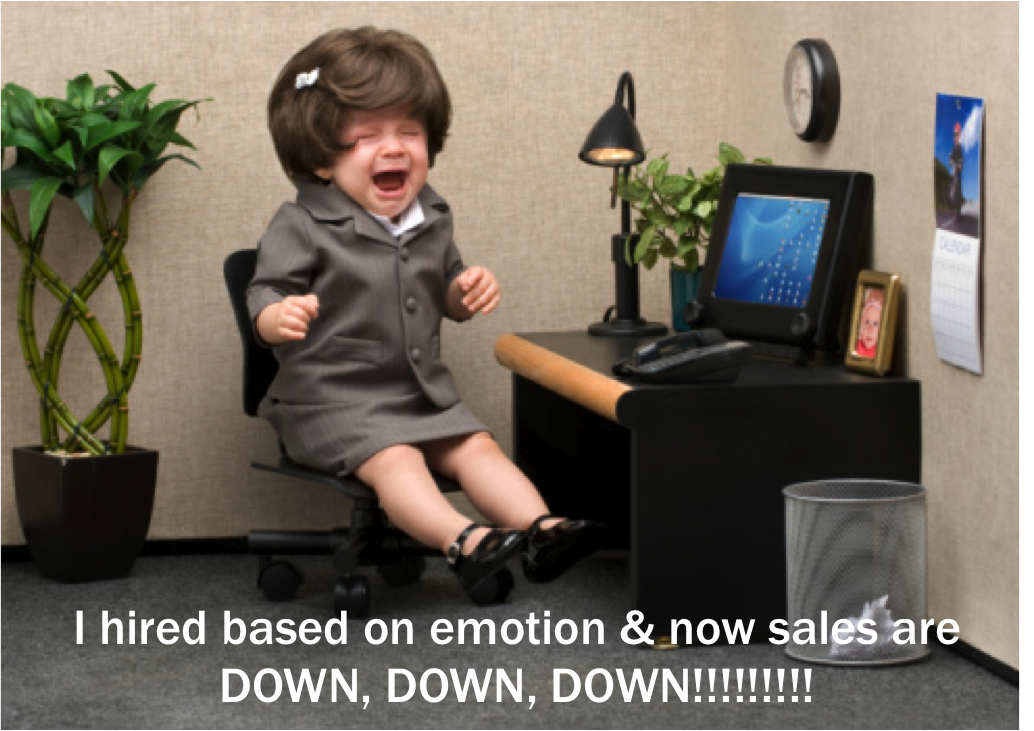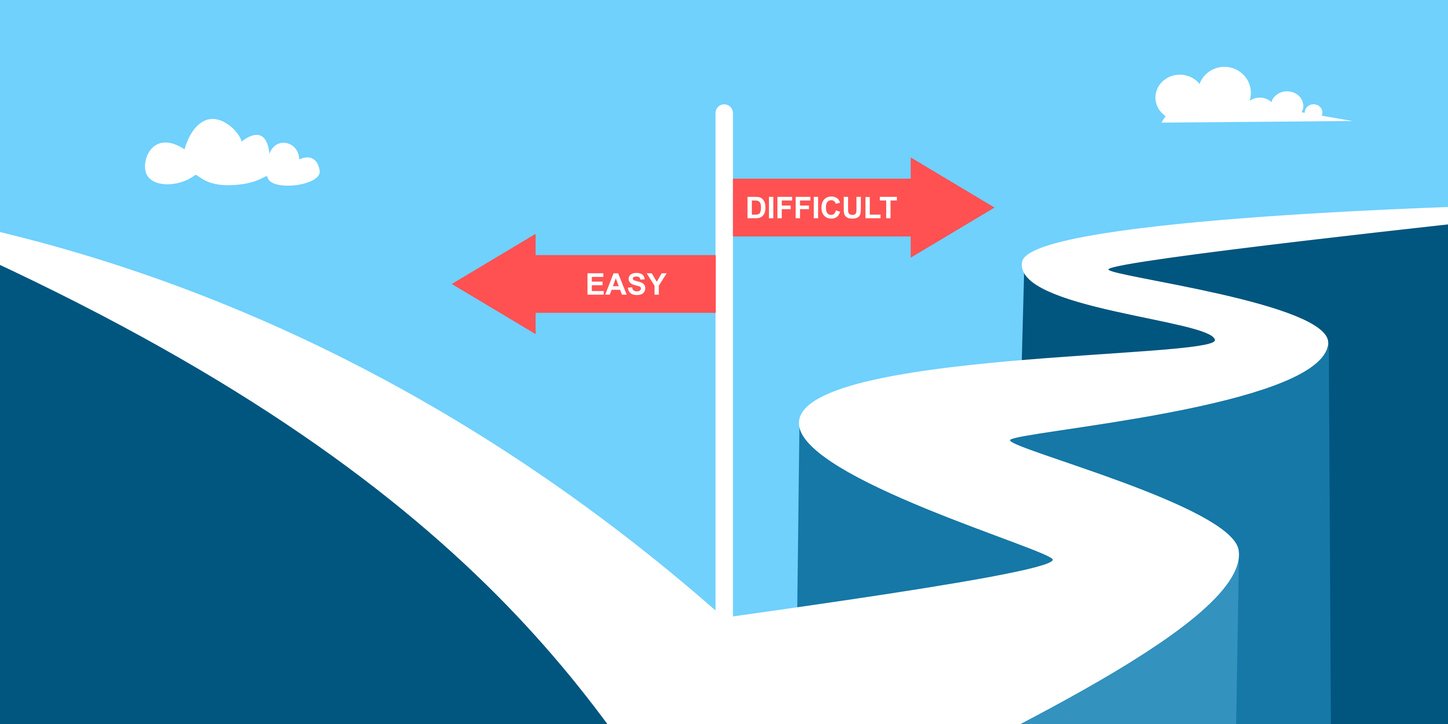
Have you ever purchased something that only disappointed you later on? We all have...
When I was seventeen, I wanted a motorcycle in the worst way. A friend of mine had one for sale and I absolutely had to have it. I bought it without considering the facts. I bought it purely on emotion. The reasons to buy it were evident, and the reasons not to were avoided.
While I enjoyed it the first few days, I began to get serious buyer's remorse. The excitement was dulled when reality began to set it. I got ripped off! I soon saw what I could have got if I hadn't made such an emotional decision.
Similarly, I often hear of “buyer’s remorse” when it comes to managers who hire salespeople that do not perform as hoped. I hear things like, “Where is the person I interviewed?”
There are three contributing problems to managers experiencing "buyer's remorse."
- Not knowing what kind of salesperson you really need.
- Hiring the wrong kind of salesperson.
- Hiring on emotion without objective data to prove the potential of the sales candidate.
What Kind of Salesperson Do You Really Need?
The only way to identify objectively the kind of salesperson you need is to complete a Key Accountabilities review and a Job Benchmark.
The Key Accountabilities Review identifies the “task buckets” necessary to get the job done, the time necessary to complete them, and their strategic importance. Failure to take the time to identify the key accountabilities usually results in the wrong kind of sales person being hired and the wrong expectations being set. Job Benchmarking uses the Key Accountabilities as a valuable communication tool to determine the best job match for your company.
I have had sales managers come to me saying they need us to help them hire an outside sales person (hunter). Then, I review the Key Accountabilities and Job Benchmark with them to find out that the salesperson will be accountable for maintaining client relationships most of the time. A true hunter would destroy those client relationships. These sales managers simply want the hunter because they read somewhere in a blog that hunters are best, but they did not take the time to review the tasks required to sell well. This is why it is critical to review the Key Accountabilities and Job Benchmark before you start searching for a particular type of salesperson.
Types of Salespeople
It is critical to hire the type of salesperson you need for the position. The traditional question is, “Do you need a hunter salesperson or a farmer?”
The right question is, “Do you need a hunter, farmer, or someone in the middle – a guide?”
The Hunter
The “hunter” salesperson is an aggressive problem-solver. The hunter salesperson can readily move between task and people. They seek to build relationships that are purposeful – for an objective to be accomplished. True hunter salespeople handle rejection well and are able move on quickly when it occurs during cold calls or when knocking on doors.
The best hunter sales people want to make money and want to take charge of their future. Most hunters are not particularly good at details, nor are they particularly good at long-term relationships unless there is something in it for them. The better / best hunter salespeople have very short attention spans.
The Farmer
The best “farmer” salespeople enjoy building long-term relationships and are better at making sure the details are handled well. Farmers do not handle rejection as well - their natural style may take it too personally at times. The best farmer salespeople have a strong people focus, yet want to make money and want to take charge of their future. They tend to be better listeners and more thorough in their approach to getting things done.
The Guide
You have most likely heard of the hunter and farmer before but have you heard of the guide? The guide is the sales personality between hunter and farmer that moves the sales relationship purposefully. They are able to be like the aggressive hunter but also build and maintain long-term relationships like the farmer. They can move between hunting and farming at will – spending their time between the two - where they see their time being most strategic. Like the hunter and the farmer, the guide seeks to make money and take charge of their future. The guide is best in sales roles where developing new business and maintain long-term relationships.
Hire Objectively
Studies show that people are biased. But of course… Personally, I have made some poor hiring decisions because I trusted my gut too much. Today, I do not hire anyone nor recommend my Clients hire anyone without completing a Key Accountabilities Review, Job Benchmark and then comparing that to the TriMetrix® HD results of a candidate.
Failing to identify the kind of salesperson you need in combination with not using a valid sales assessment like the TriMetrix® HD will lead to reduced sales performance and a sales manager with “flat forehead syndrome” - coaching a low performer so much that you bang your head against a wall repeatedly.




